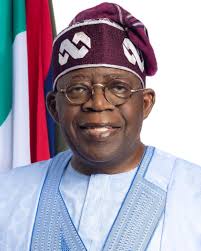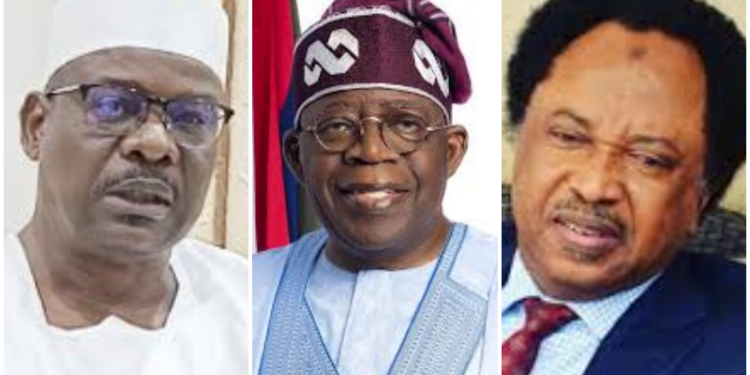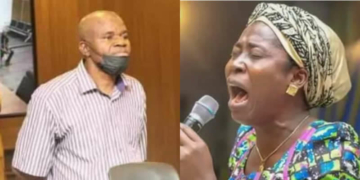- President Tinubu transmitted Tax Reform Bill to NASS
- NASS Adjourns Plenary Till November 19, As Controversy Continues To Trail The Bill
- Northern Governors Forum, Ali Ndume Oppose The Bill As Sen. Shehu Sani Says The Bill Is Not Inimical To The People
Recently, President Bola Tinubu transmitted four tax reform bills to the National Assembly to streamline tax collection, ensure compliance, and optimise revenue.
In a letter to the Senate and House of Representatives that Thursday, the president said the bills will provide a clear and concise framework for the efficient administration of all tax laws, ensuring compliance and reducing tax disputes.
The bill is entitled, “An Act to Repeal Certain Acts on Taxation and Consolidate the Legal Frameworks Relating to Taxation and Enact the Nigeria Tax Act to Provide for Taxation of Income, Transactions and Instruments, and for Related Matters.”
The president transmitted the Nigeria Revenue Service Establishment Bill which seeks to repeal the Federal Inland Revenue Service Bill N0. 13 of 2007 and establish the Nigeria Revenue Service, to access, collect and account for revenue accrued to the federation.

The president also transmitted the Joint Revenue Board Establishment Bill which seeks to establish the Joint Revenue Board, the Tax Appeal Tribunal, and the Office of the Tax Ombudsman for the harmonisation and coordination and settlement of disputes arising from revenue administration in Nigeria.
The other bills are the Nigeria Tax Bill 2024 which is expected to provide the fiscal work for tax in the country, and the Tax Administration Bill which will provide a clear and concise legal framework for all taxes in the country.
In his words, President stated that “I write to forward herewith the Fiscal and Tax Reform Bills by the Federal Inland Revenue Service for consideration and passage by the Senate.
“The proposed tax bills present substantial benefits to align with my government’s objectives on fiscal reform and economic growth by enhancing taxpayer compliance, strengthening our fiscal institutions, and fostering a more effective and transparent fiscal regime.”
The president urged the Senate to give the bills expeditious consideration.
Godswill Akpabio, the Senate president, referred the bills to the Senate committee on finance and mandated the committee to report back in three weeks.
Key provisions in the new proposed tax bill
Expectedly, since its transmission, the bill has sparked significant controversies and protests among Nigerians.
By and large, Governors and traditional rulers of Northern Nigerian states convened have convened and unanimously rejected the bill. They said the contents of the proposed tax bill do not align with the interests of the North and other sub-national entities.
Facts to know about the proposed bill
In any case, there are salient issues, clauses that are attached to the proposed tax bill, which have led to the oppositions and punches the bill has continued to receive from some sections of the country.
Increase in VAT
WITHIN NIGERIA gathered that according to Section 146 of the bill, it proposes to raise the value added tax (VAT) from 7.5 percent to 10 percent by 2025, with further increases to 12.5 percent from 2026 to 2029, and 15 percent from 2030 onwards.
Our findings also revealed that the value of taxable supplies includes the total consideration plus VAT for monetary transactions or the market value for non-monetary transactions. In cases where the transaction is part of a larger arrangement, only the relevant portion will be taxable.
For transactions between related parties or those involving non-monetary exchanges, the taxable value is determined by the equivalent market value.

More so, VAT collected by a taxable person will be called output VAT. Government bodies (federal, state, and local), their ministries, departments, agencies, and other designated agents are required to collect or withhold VAT and remit it to the tax authority as prescribed.
VAT Exemptions
The bill also explained that certain supplies will be exempted from the proposed VAT. These categories include oil and gas exports, crude petroleum oil, and feed gas. Other exempt items include: goods purchased for humanitarian projects (where the donor pays VAT upfront), baby products, locally manufactured sanitary products, military hardware, arms, and ammunition supplied to security agencies.
Additionally, electricity generated by generation companies (GENCOs) and supplied to the national grid or to the Nigeria Bulk Electricity Trading Company (NBET) will be exempt, along with electricity transmitted by the Transmission Company of Nigeria (TCN) to electricity distribution companies (DISCOs).
27.5% Company Tax
According to Section 56 of the bill, it outlines tax rates to be imposed on the total profits of companies, with small firms taxed at 0 percent. All other companies will face a tax rate of 27.5 percent in 2025, which will reduce to 25 percent from 2026. If a company’s effective tax rate is less than 15 percent in any assessment year, it must recompute and pay an additional tax to bring it up to the 15 percent threshold.
This provision applies to companies within multinational enterprise groups and any company with an aggregate turnover exceeding N20 billion in the relevant year.
4% Development Levy on Companies
Also Section 59 stipulates a development levy on the assessable profits of companies, excluding small and non-resident companies. The levy will be four percent for 2025 and 2026, three percent from 2027 to 2029, and two percent from 2030 onwards. The levy will fund the Student Education Loan Fund.
The revenue distribution is as follows: The Tertiary Education Trust Fund will receive 50 percent in 2025 and 2026, 66 percent from 2027 to 2029, and zero percent from 2030 onwards. The Student Education Loan Fund will receive 25 percent in 2025 and 2026, 33 percent from 2027 to 2029, and 100 percent from 2030 onwards.
The National Information Technology Development Fund will receive 20 percent in 2025 and 2026, and zero percent from 2027 onwards. The National Agency for Science and Engineering Infrastructure will receive 5 percent in 2025 and 2026, and zero percent from 2027 onwards.
5% Excise Tax on Lottery and Gaming Income
Section 62 and Schedule 10 of the law propose 5 percent excise duty on revenue of lottery and gaming trade or business. In determining the assessable profits of lottery and gaming trade or business, the following deductions shall be allowed, in addition to others permitted under Chapter Two of the Act: Any amount paid as winnings, prizes or similar payments from the relevant Prize Fund; statutory contributions to the Lottery Trust Fund; agency commission expenses incurred; and levies paid to relevant regulatory and government authorities as contained in relevant federal or state laws.
‘Gaming’ includes gambling, wagering, video poker, roulette, craps, bingo, slot or gaming machine, drawings or other games of chance conducted by any person;
‘Lottery’ or ‘Lotteries’ includes any betting, game, scheme, arrangement, system, plan, promotional competition or device for the distribution of prizes by lot or chance, or as a result of the exercise of skill and chance, or based on the outcome of real or virtual sporting events, or any other game, scheme, arrangement, system, plan, competition or device.
5% Telecoms Tax
The bill proposes a five percent excise duty on telecommunications services, including postpaid and prepaid services regulated by the Nigerian Communications Commission (NCC).
National Assembly adjourns plenary till November 19
In the midst of the growing opposition against the bill, the Senate and House of Representatives on Thursday adjourned plenary sittings till November 19, 2024.
Senate President Godswill Akpabio and Speaker Tajudeen Abass, made the announcement during plenary in both Chambers respectively.
The lawmakers said the two weeks would afford their relevant committees to carry out oversight functions on ongoing projects to determine the level of performance of the 2024 capital budget.
The oversight function by the lawmakers is coming ahead of the expected presentation of the Medium Term Expenditure Framework ans Fiscal Strategy Paper (MTEF/FSP) and the 2025 Appropriation Bill to the National Assembly.
The Speaker Tajudeen had announced at plenary on Wednesday that the House will adjourn plenary for a few days while asking members to actively participate in the oversight activities.
He said the oversight is part of the constitutional obligation of the House to the Nigerian people and requested for cooperation from all MDAs to ensure the success of the oversight.
Northern governors forum reject the bill
However, in what could be a setback for the proposed law, governors of 19 states under the aegis of Northern States Governors Forum (NSGF), on Monday, rejected the proposed tax amendment bill.
In a communique issued at the end of a joint meeting with Northern Traditional Rulers Council at Government House, Kaduna, the governors urged the National Assembly to “oppose any bill that can jeopardise the well-being of our people”.
Governor of Gombe State/Chairman of NSGF, Mohammadu Yahaya, who read the group’s communique, called for equity and fairness in the implementation of all national policies and programmes to ensure that no geopolitical zone was short-changed or marginalised.
Nonetheless, Yahaya said, “Forum notes with dismay the content of the recent Tax Reform Bill that was forwarded to the National Assembly. The contents of the bill against the interests of the north and other sub-nationals, especially the proposed amendment to the distribution of Value Added Tax (VAT) to Derivation-based Model.
“This is because companies remit VAT using location of their headquarters and tax office and not where the services and goods are consumed.
“In view of the foregoing, the forum unanimously rejects the proposed Tax Amendments and calls on members of National Assembly to oppose any bill that can jeopardise the well-being of our people.”

The governor added, “For the avoidance of doubt, the Northern Governor’ Forum is not averse to any policies or programmes that will ensure the growth and development of the country.
“However, the forum calls for equity and farness in the implementation of all national policies and programmes so as to ensure that no geopolitical zone is short-changed or marginalised.”
On the present economic hardship in the country, the northern governors appealed to all citizens to remain calm, saying the states and the federal government are working hard to implement measures that will cushion effects of the hardship.
The forum emphasised that the traditional institutions were critical in the quest for lasting peace and security in the north and urged them to cooperate with security agencies in the fight against banditry, cattle rustling, communal clashes, farmers/herder clashes, and other forms of criminality.
The communique further stated, “With the recent ‘End Bad Governance’ protests that took place in August, it has resolved to scale up efforts to tackle the root causes of youth restiveness by investing in education, skills development, job creation and pathways for the youth to channel their energy into productive ventures, thereby reducing their vulnerability to crime and social vices.”
The forum also decried the current electricity blackouts in most parts of the northern states and called on the federal government and relevant agencies to urgently address the situation, caused by vandalisation of electricity transmission infrastructure.
“This matter not only underscores the vulnerability of critical infrastructure, but also the need to build additional transmission lines and diversify our energy supply so as to better connect our region and improve our energy resilience,” the communique said.
It stated that the north held immense agricultural potential, which, if fully harnessed, could significantly alleviate hunger and boost economic growth.
It said, “To achieve this, we resolved to provide adequate support to our farmers, including access to financing, modern farming techniques and infrastructure, such as roads and irrigation systems.
“Agriculture should not only be seen as a means to feed our people but also as a catalyst for industrialisation and job creation across the region.
“That can be achieved through re-industrialisation of the north, especially by reviving the textile value chain and development of other agro-allied industries.”
Yahaya said, “Forum commends His Excellency, the President and Commander-In-Chief of the Armed Forces of the Federal Republic of Nigeria for the reform initiative in the livestock sub-sector and agreed to provide the necessary political will and commitment to ensure the success of the Federal Government livestock development initiatives.
“The forum also agreed to sustain engagement and cross-fertilisation of ideas with the Presidential Livestock Reforms Implementation Committee to achieve greater results.
“Forum acknowledges the fact that climate change has greatly affected our environment resulting in the recent flood incidents in many parts of the north and, therefore, resolved to partner with the federal government and other stakeholders to build irrigation infrastructure like canals and waterways to divert excess water and channel them towards irrigation activities, thus, enhancing rural livelihoods and safeguarding food security.”
The meeting was attended by the governors of Zamfara, Borno, Bauchi, Adamawa, Kogi, Yobe, Gombe, Kaduna, Nasarawa and Kwara states.
The governors of Plateau, Benue, Katsina, Kano, Jigawa, Sokoto, Kebbi, Taraba and Niger were represented by their deputies and secretaries to the state governments.
Ndume opposes the bill
Meanwhile the lawmaker representing Borno South Senatorial District in the National Assembly, Ali Ndume, has also criticized the bill, stating they are “dead on arrival”.
His remarks come amid widespread opposition to the proposed increases in Value Added Tax and other tax measures.
Ndume, who spoke on Channels Television’s Politics Today programme on Tuesday, expressed the strong sentiment among Nigerians against new tax initiatives, particularly in light of the ongoing economic challenges facing the nation.
“The governors and traditional rulers have said that the bill is not good. So, the best course of action is to withdraw it immediately.
“Right now, our people don’t want the VAT bill; they don’t even want to hear about it. That is why we are going to make it dead on arrival,” he stated.
Ndume also highlighted that while Nigerians are willing to pay taxes, they must first be able to afford to do so.
“People are struggling to survive. Let people live first before you start asking them for taxes,” he said.
Ndume noted that he has begun rallying support among his colleagues to reject the tax proposals.
He called for a focus on self-reform within the government rather than imposing additional financial burdens on citizens.
NEC asks President Tinubu to withdraw tax bill
The National Economic Council, asked President Bola Tinubu to withdraw the Tax Reforms Bills from the National Assembly to allow for wider consultations and consensus building.
Oyo State Governor, Seyi Makinde, said this formed part of resolutions reached at the 144th meeting of the National Economic Council at the State House, Abuja.
Makinde told journalists that the council members agreed that it was necessary to allow for consensus building and understanding of the bills among Nigerians.
“NEC noted the need for sufficient alignment on the proposed reforms and recommended the withdrawal of the tax reform bills,” he stated.
Makinde stated that this decision was made for the benefit of the country and emphasized the need for further consultations regarding the bills.
“We saw the gap and decided that there is a need for a wider consultation,” he added.
By and large, NEC’s decision came days after the Northern Governors kicked against the reform bills.
However, despite the mounting opposition against the bill, President Bola Tinubu has remained resolute on the bill, saying he will not back down on the introduction and lobbying to make the bill come to reality.
Sen. Shehu Sani on the Reform Tax Bill
In any case, the former Senator who represented Kaduna Central Senatorial District, Shehu Sani has stated that the tax reform bill which was not against or inimical to the interest of the North.
Sani gave his opinion in light of insinuations trailing the bill since it was brought to the National Assembly as an executive bill, saying that northerners or anyone whosoever should move beyond sentiments and look at the benefits that are inherent in the bill.
In a statement with newsmen recently, the former lawmaker in the 8th National Assembly described the bill as one of President Bola Tinubu’s bold moves to strengthen tax administration in Nigeria, in which its operations and enforcement are simplified.
According to him “The Tax reform Bill is not inimical to the North or any part of this country.
“It is in fact economically beneficial and fair to all parts. People should keep aside sentiments and read the Bill carefully.
“It’s a comprehensive and bold move to harmonise and simplify tax administration and streamline its operations and enforcement. The Bill will actually generate and safeguard more revenue for the country and the States.
“It will also combat the corruption in the so-called tax waivers granted to business cabals. There is nowhere in the document where any region will be shortchanged or taxes will be increased or jobs will be lost.
“Northern Governors should rescind their decision to reject the Bill and take time to read it and make inputs where necessary. NASS must treat this important Bill with all seriousness.”




Discussion about this post